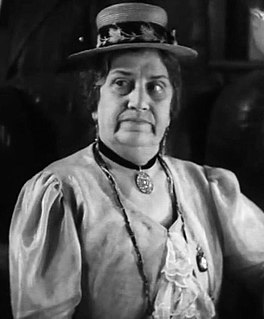
Manoel Cândido Pinto de Oliveira was a Portuguese film director and screenwriter born in Cedofeita, Porto. He first began making films in 1927, when he and some friends attempted to make a film about World War I. In 1931 he completed his first film Douro, Faina Fluvial, a documentary about his home city Porto made in the city symphony genre. He made his feature film debut in 1942 with Aniki-Bóbó and continued to make shorts and documentaries for the next 30 years, gaining a minimal amount of recognition without being considered a major world film director. Among the numerous factors that prevented Oliveira from making more films during this time period were the political situation in Portugal, family obligations and money.
António Filipe Lopes Ribeiro was a Portuguese film director.

The Cinema of Portugal started with the birth of the medium in the late 19th century. Cinema was introduced in Portugal in 1896 with the screening of foreign films and the first Portuguese film was Saída do Pessoal Operário da Fábrica Confiança, made in the same year. The first movie theater opened in 1904 and the first scripted Portuguese film was O Rapto de Uma Actriz (1907). The first all-talking sound film, A Severa, was made in 1931. Starting in 1933, with A Canção de Lisboa, the Golden Age would last the next two decades, with films such as O Pátio das Cantigas (1942) and A Menina da Rádio (1944). Aniki-Bóbó (1942), Manoel de Oliveira's first feature film, marked a milestone, with a realist style predating Italian neorealism by a few years. In the 1950s the industry stagnated. The early 1960s saw the birth of the Cinema Novo movement, showing realism in film, in the vein of Italian neorealism and the French New Wave, with films like Dom Roberto (1962) and Os Verdes Anos (1963). The movement became particularly relevant after the Carnation Revolution of 1974. In 1989, João César Monteiro's Recordações da Casa Amarela won the Silver Lion at the Venice Film Festival and in 2009, João Salaviza's Arena won the Short Film Palme d'Or at the Cannes Film Festival. Several other Portuguese films have been in competition for major film awards like the Palme d'Or and the Golden Bear. João Sete Sete (2006) was the first Portuguese animated feature film. Portuguese cinema is significantly supported by the State, with the government's Instituto do Cinema e do Audiovisual giving films financial support.

Camilo Castelo Branco, 1st Viscount of Correia Botelho, was a prolific Portuguese writer of the 19th century, having produced over 260 books. His writing is considered original in that it combines the dramatic and sentimental spirit of Romanticism with a highly personal combination of sarcasm, bitterness and dark humour. He is also celebrated for his peculiar wit and anecdotal character, as well as for his turbulent life.

Paulo Pires is a Portuguese television and film actor and former stage actor and fashion model, known for his work in Portuguese and Spanish television and films. He was named Portuguese Theatre Personality of the Year in the 1996 Portuguese Golden Globes. In October 2008 The Biography Channel aired a documentary covering 20 years of his life and work in entertainment.
O Pai Tirano is a 1941 Portuguese film comedy directed by António Lopes Ribeiro, starring Vasco Santana, Ribeirinho, Leonor Maia, Teresa Gomes and Laura Alves. It is one of the best-known comedies of its genre, the comédia à portuguesa of the Golden Age of Portuguese cinema, still popular six decades after its release.

Ala-Arriba! is a 1942 Portuguese romantic docufiction set in Póvoa de Varzim, a traditional Portuguese fishing town.

António Maria da Silva was a Portuguese actor. He appeared in more than 40 productions over his more than 50 years in acting.

O Pátio das Cantigas is a Portuguese film from 1942, directed by Francisco Ribeiro, "Ribeirinho", that takes place in a typical Lisbon neighbourhood during the Popular Saints festivals, through a maze of misunderstandings and innuendos, with Vasco Santana, António Silva, Laura Alves and Ribeiro.
Bernardo da Costa Sassetti Pais was a Portuguese jazz pianist and film composer.
Rosa Lobato de Faria was a Portuguese actress and writer whose career encompassed a variety of media including acting, scriptwriting, literature and songwriting. She was a respected figure in Portuguese cultural circles. She was married twice. Her first marriage, which produced three children, ended in divorce.
João Marcelino Arroio was a Portuguese composer. He is best known for his opera Amor de Perdição. He notably founded the Orfeon Académico de Coimbra in 1880.

Doomed Love is a 2008 Portuguese film directed by Mario Barroso.
Amor de Perdição is a 19th-century Portuguese novel by Camilo Castelo Branco. It has been adapted into several films, like Amor de Perdição and a telenovela.
Amor de Perdição is a Brazilian telenovela that first aired on TV Cultura in 1965. It is based on the novel of the same name by Portuguese writer Camilo Castelo Branco.
Amor de Perdição is a 1978 Portuguese film directed by Manoel de Oliveira.
PAX is a Portuguese comedy film directed by Eduardo Guedes with a screenplay by Bruno Heller. It is part of a film trilogy about Lisbon, ordered for Lisbon's year as European Cultural Capital in 1994.
Guerra Conjugal is a 1975 Brazilian film directed by Joaquim Pedro de Andrade. The screenplay is an adaptation of Dalton Trevisan's short stories.

Sofia Santos was a Portuguese actress.
José Pinheiro Amaro was a Portuguese actor, best known for his roles in Camões (1946), Bola ao Centro (1947) and Passagem de Nível (1965).








